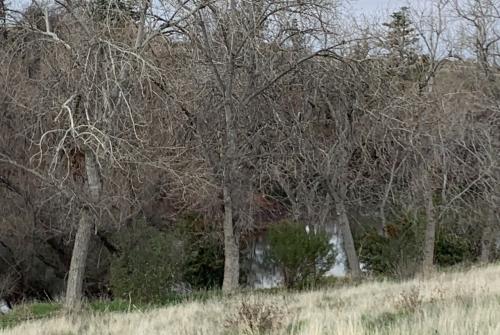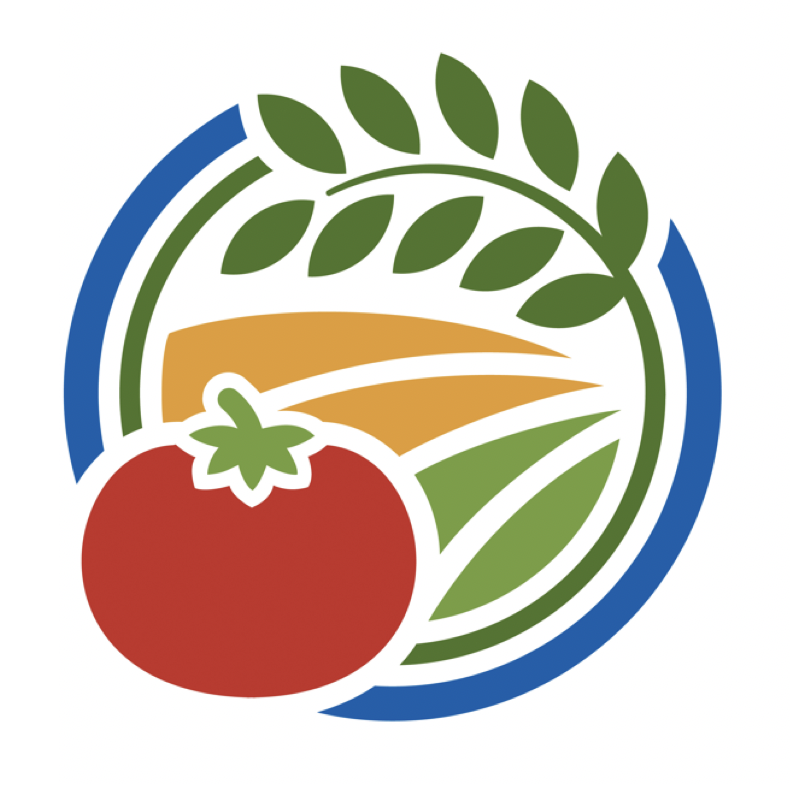
Farm Information
County: Colusa, Yolo
Location: Arbuckle
Slope: Flat
Irrigation system: Solid set sprinklers
Soil type: Loam
Soil detail: Grandbend loam
Special farming challenges: n/a
- Cropping Systems Information
- Crop: walnuts
Acres of orchard or vineyard: 93Other crops: almonds, rice, row crops
Acres of other crops: n/a
Organic management: No
Certifications: None
Certifications notes: n/a
Where using cover crops: almonds, rice, row crops - Grower Experience, Farm Priorities, and Cover Cropping Goals
- When started farming (yr): Husband Pat and Kim joined the farm’s management in 2009 and 2014 respectively, but her family has farmed in the area since the mid 1800s
Farm priorities: Sustainability, longevity and long-term viability for future generations Want to be economically sustainable, but also consider that they've been farming this land for 5 generations and hope to see 5 more generations. They strive to treat the soil with care, to ensure good yields in the future."We're not venture capitalist farmers. We're trying to make a living in it."
Years growing orchard or vineyard crop: n/a
Years growing cover crops: 11 years
Initial transition to cover cropping: Started planting a pollinator mix on the border only, working with Xerces Society. After seeing that it worked well, started planting every 3rd row within almond orchard. Initially they worried it might "create a mess at harvest", but after the cover crop reseeded itself throughout the block, they realized it would be okay. Want to support both domestic honey bees and native bees, to increase almond yields. After working with NRCS, also see need for improving gravelly soils by adding organic matter to hold water and fertilizer. Also to sequester carbon, increase microbial and earthworm activity.
Goals and benefits: Soil improvement
Benefits description: Soil fertility
Change in goals over time: They have expanded their focus to include soil building for water retention, erosion control and fertility in addition to the pollinator benefits.
Reasons: They've done a lot of experimenting and trialing with various partners, including UC Davis, Xerces, and NRCS. The age and location of the orchards changes some of the priorities. - Cover Crop Details, Planting and Management Methods
-
Block described here: Walnuts
Current cover crops: Legumes
Species and mixes: Kamprath Seed clover mix: Crimson clover, rose clover, lona subclover, antas subclover, monti sub clover, Denmark subclover, jester barrel medic, nitro persian clover, lighthing persian clover, balansa clover
Planting method: Drill seed, broadcast seed
Planting date (2020): December
Was that optimal? No, earlier would be better. Difficult with systems logistics.
Pre-plant soil prep: Sanitize and float orchard then drill after light rain
Planting equipment: No-till drill
Seeding rate: ~25 lbs/acre
Seeding depth: n/a
Did it germinate well? No, light stand due to late planting.
Additional management and advice: n/a - Cover Crop Termination Methods and Biomass Management
-
Termination method: Mow
Termination equipment and process: Mower
Termination date: June
Was it optimal? n/a
Biomass management: Leave in place. Strives for a no-till system except when a light discing is needed for broadcast seeding. - Cover Cropping Challenges and Strategies to Address Them
- Challenges: Establishment difficulties, cost
Challenges description: Cost, establishment
Strategies to address challenges: Better planting timing (could irrigate), finding partners to share cost
Was the cover crop worth it? Overall, yes. They were initially unsure of the investment in expensive clover seeds for the walnut orchard (~$45/acre) but did have some reseeding in 21/22.
Least successful past cover crops: n/a
